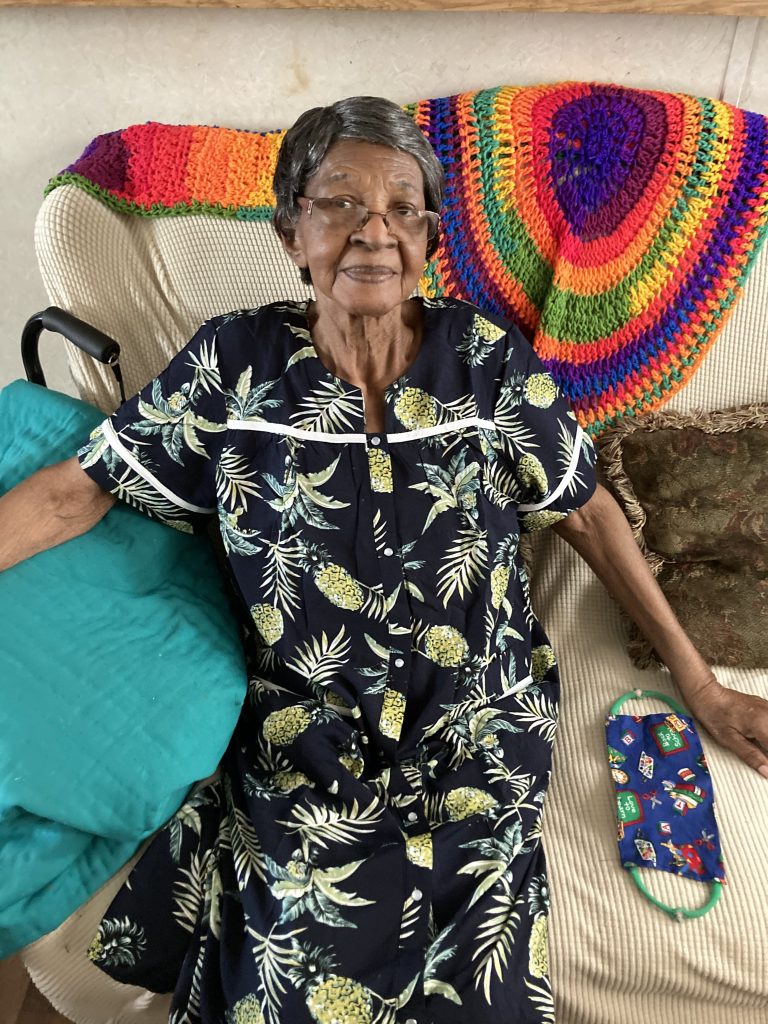Worldwide, families are crucial to providing care to people with dementia. Informal caregivers provide unpaid and ongoing support including personal care and more complex activities such as managing medication intake or finances.
While dementia caregivers may experience positive feelings from caring, such as personal and spiritual growth or increased family unity, they are frequently exposed to multiple sources of stress, such as financial problems, role strain, and social isolation. Caregivers are more likely to experience depression and anxiety when compared with the general population. Those facing stress and burden are more prone to act harmfully towards the care receiver, and to decide on their early institutionalization. It is crucial to offer caregivers support, respite, information, and training to prevent undesired upshots for both themselves and the care receiver.

Are dementia caregivers getting the support they need?
Conventional/in-person interventions aimed at supporting dementia caregivers may range from practical assistance (e.g., home help) to psychosocial support (e.g. psychoeducational programs, support groups or counseling). Psychosocial interventions, especially when structured and multifaceted (e.g. education together with emotional support), help improve caregivers’ well-being and psychological health.
However, caregivers may face multiple barriers to accessing such interventions. First, these programs may not be available due to a lack of national resources or understaffing. Second, when interventions are available, caregivers may not attend. Full-time caregivers may not be able to temporarily free themselves from caregiving responsibilities. When working, caregivers may be unable to attend intervention sessions offered during working hours. Caregivers may also choose not to seek these services due to stigma associated with dementia, unwillingness to share negative feelings, or a preference to cope with problems alone.
There is a paradox in terms of dementia caregivers’ support service usage: while services are needed, they are under-utilized, frequently discontinued, and sought by the caregiver at the later stages of the person with dementia’s condition.
How can online interventions support dementia caregivers?
Online interventions may help address barriers faced by dementia caregivers to access support services, due to several advantages:
- They are easy to access and convenient – they can be used in any place with an internet connection.
- They are self-paced – the caregiver can fit the intervention into their schedule.
- They are customizable – allowing for a selection of content that best matches individual needs.
- They are standardized – less prone to variations in training contents (for example, overemphasis or omission of contents by a moderator).
- They allow for anonymity – when self-guided or based on anonymized professional help (e.g., chat booth).
- They are scalable and cost-effective – when self-guided, there is no need to train staff to offer supportive interventions to additional caregivers. Research on the acceptance and effectiveness of online interventions is scarce but overall positive.
iSupport for dementia
In 2017, the World Health Organization (WHO) launched iSupport, an online knowledge and skills training program for caregivers of people with dementia. iSupport aims to prevent and/or decrease mental and physical health problems associated with caregiving, and to improve caregivers’ quality of life. iSupport is being implemented in multiple countries. WHO has created a Community of Practice to facilitate the exchange of mutual learning between countries related to 1) the adaptation and implementation of iSupport and 2) iSupport research. WHO is currently reviewing iSupport to optimize the program for user-friendliness, uptake in low- and middle-income countries, and to leverage easy-read infographics and new technologies within the context of COVID-19.
The COVID-19 pandemic and resulting breakdown of community-based services for people with dementia and their caregivers emphasized the importance of providing caregivers with accessible public health messages to reduce caregiver stress and improve their mental health and well-being. Therefore, WHO launched iSupport Lite, consisting of a set of short, practical support messages for caregivers of people with dementia extracted from iSupport. iSupport Lite offers tips for caregivers of people with dementia in the form of a video, posters and Q&As.
iSupport-Portugal: reports from the field
The European-Portuguese version of iSupport is among the first adaptations of the program driven by a team at the University of Porto. As stressed by the team’s leader, Constança Paúl, this work was propelled by local needs: “In Portugal, there is a high share of old people, a high prevalence of dementia and the provision of care relies strongly on families. Modern ways of organizing community care together with technological innovation are instrumental in addressing such challenges. iSupport is a step further in that direction.”
The translation of iSupport followed a sense-to-sense approach, which, as explained by Milaydis Sosa Napolskij (translator), “requires a good understanding of the culture we are targeting We also used standard and non-stigmatizing language”.
The cultural adaptation of iSupport involved caregivers, researchers, and health/social care professionals. The national Alzheimer’s Association was a key partner, as stressed by Maria do Rosário Zincke: “It was with enthusiasm that the Association contributed to this work. It is devoted to persons with dementia, their dignity, autonomy, and rights. Throughout the program and whenever possible, the caregiver is invited to support the person with dementia in making his/her own decisions.”
Spouses and children of people with dementia were involved in testing program content and usability. iSupport-Portugal is perceived as a useful and comprehensive resource, with an appealing, trustworthy and user-friendly design.
“iSupport has been a blessing for me because it has been really hard to find reliable information and advice on how to deal with my wife. It took me much time to learn the basics. I think it will help many people.” (Manuel*, informal caregiver)
“The language is very accessible; there is no need to deal with all those technical terms. Due to my busy working days, I used the program mostly after 11 pm, and it was not boring or tiring at all.” (Eva, informal caregiver)
While caregivers’ acceptance of iSupport-Portugal is encouraging, its impact on improving caregivers’ mental health still needs to be demonstrated; thus an intervention study is ongoing.
Online interventions for dementia caregivers: challenges and recommendations
Implementing online interventions involve a number of challenges. First, there remains a digital gap, with some population groups having more opportunities to access new technologies than others. As these technologies are used predominately by younger and educated individuals, online interventions may only reach a segment of caregivers. Second, even among digitally skilled individuals, face-to-face interventions may be preferred due to their unfamiliarity with online interventions or perception of the former as more effective and/or trustworthy. For instance, caregivers may have concerns about personal data privacy. As stressed by Ana Ferreira, digital security specialist and contributor to iSupport-Portugal: “In health-related online interventions transparency about how the users’ data are used and protected is key to promote trust and uptake of such solutions.”
There is currently limited knowledge pertaining to the effective implementation of online interventions. Based on the experience with iSupport, however, there are some take-away lessons:
- Assuming that digitally-skilled individuals are willing to use online interventions is misleading. Before deploying an online intervention, it is necessary to learn about the profile, learning preferences and attitudes of prospective users. People with positive attitudes towards online interventions are more likely to achieve better results.
- Online interventions must be co-created with users. This will result in more tailored interventions and minimize implementation costs.
- A design-for-all approach is preferred. The intervention should be accessible to the widest number of people possible, including people with diverse abilities (e.g., digital skills; socio-economic status) and from different cultures.
- Building online interventions is more complex than replicating in-person programs. Online environments have unique interaction dynamics; how users interact with an online program must always be tested.
- The care ecosystem must be involved in deploying online interventions. Health/social care professionals are key to informing caregivers about the evidence on online interventions. Government support to implement, scale and/or institutionalize online interventions is instrumental.
Provided a balanced design is achieved, online interventions can bridge gaps in providing support to dementia caregivers, either as an alternative or complementary approach to standard care. For the future, we hope to see the successful implementation of free or inexpensive and effective services for dementia caregivers within an accessible infrastructure, so more caregivers are able to get support for themselves.
* All caregivers’ names are fictional to protect their identity.

Soraia Teles is a researcher at Institute of Biomedical Sciences Abel Salazar (ICBAS), a member of the AgeingC research group at the Center for Health Technology and Services Research (CINTESIS), and a Ph.D. fellow in Clinical and Health Services Research at the Faculty of Medicine, University of Porto (Portugal). She graduated in Psychology, got a master’s degree in Clinical and Health Psychology, and a second master’s degree in Social Economy. She lectured in undergraduate Psychology courses and training courses. In addition to her experience in the academic context, she worked in a NGO where she designed, implemented and assessed action-research projects. To date, she has been involved in 15 national/international projects. Her research has been focusing on the topics of Health Technologies, Ambient Assisted Living, and ICT for Ageing in place. She is currently responsible for the European-Portuguese translation, adaptation, and field testing of iSupport – a self-help internet-based training and support program authored by WHO and targeted at informal dementia caregivers.
Email contact: teles.s.soraia@gmail.com.

Stéfanie Fréel has worked for 10 years in health policy across nongovernmental, governmental, multilateral and academic settings. She has experience working on mental health, health equity, Indigenous health, and health technology issues at local, national and global levels. Stéfanie currently works as a Consultant in the Department of Mental Health and Substance Use at the World Health Organization (WHO). There, she works closely with governments, civil society, academia and people with lived experience to raise awareness of dementia, structure national policies, strengthen health information systems, and produce normative guidance, tools and resources to inform policy and programmatic implementation at country level. Prior to joining WHO, Stéfanie oversaw the disbursement of health services and population health research funding within the Strategic Policy and Planning Division of the Ontario Ministry of Health and Long-Term Care in Canada. She also led the development of an inter-ministerial strategy to improve government planning, service delivery and accountability through multisectoral data sharing, resulting in legislative amendments. Stéfanie holds an Honours Bachelor of Science in Psychology and a Master in Global Affairs from the University of Toronto, Canada, and is currently pursuing a Doctorate of Public Health at the London School of Hygiene and Tropical Medicine.




